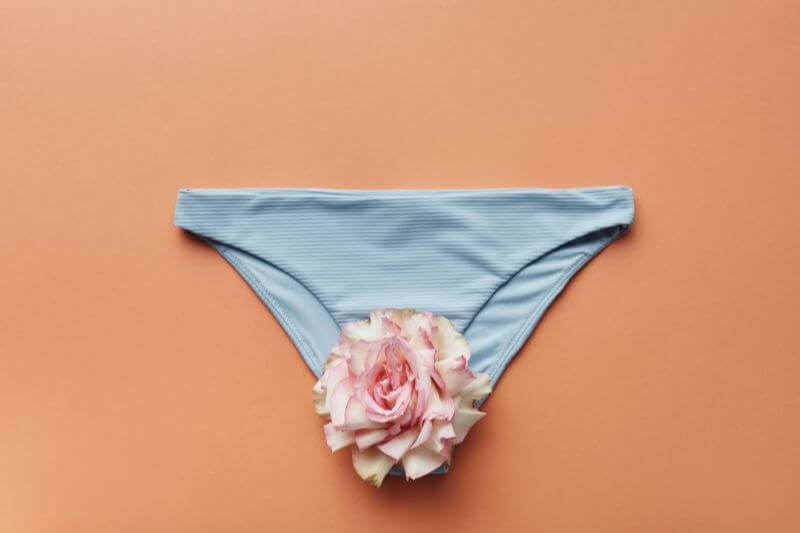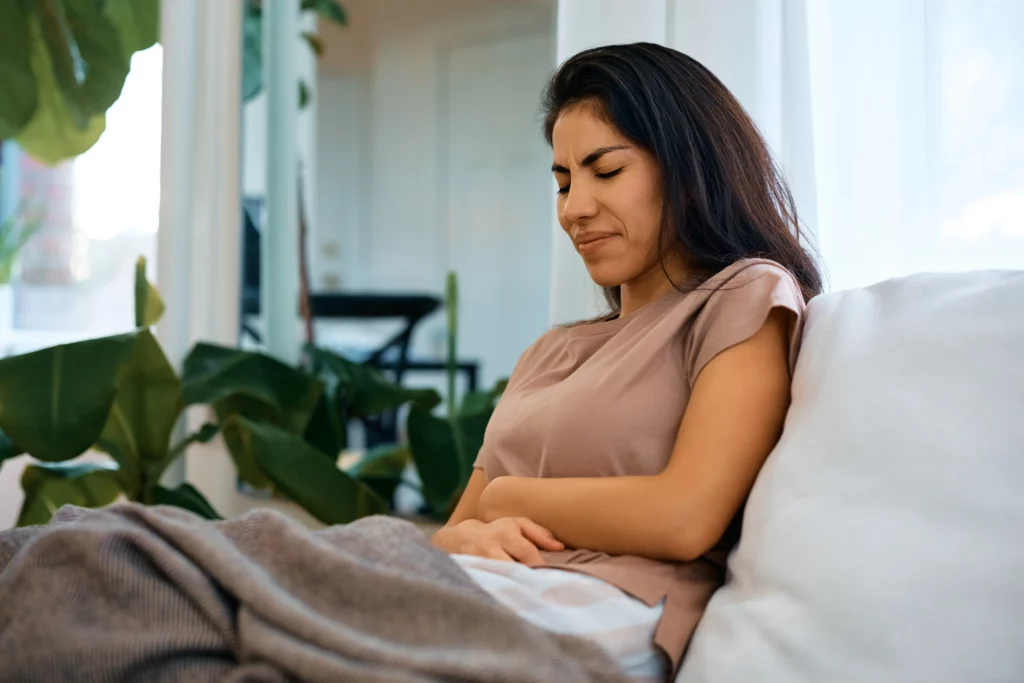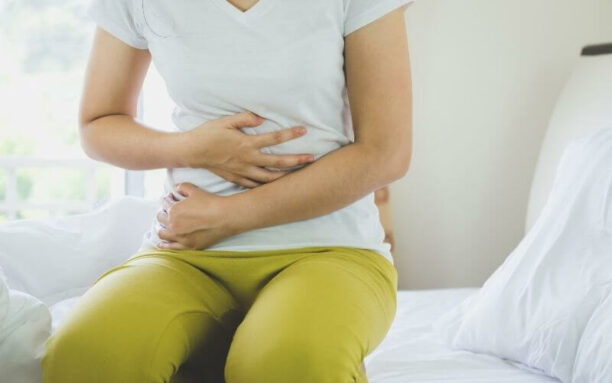
Cystisis symptoms and treatment
Burning sensations during urination, lower abdominal pain, frequent and urgent need to go to the toilet, cloudy urine with an unusual odor, all these Cystitis symptoms can be very, very uncomfortable and inconvenient in everyday life. Welcome to the dreaded cystitis club! Knowing that 1 out of 2 women is affected by cystitis, it’s high time we talked about it seriously !
So what is cystitis?
It is a urinary infection that affects an organ of the urinary system (bladder, kidney, urethra, or prostate). Women are more affected by this issue due to the size of the urethra and the proximity to the vagina and anus.
Indeed, the anus is an area where bacteria are always present and can move up the urethra to the bladder and multiply in the urine.

What are the symptoms of cystitis?
The symptoms of a urinary infection usually come on suddenly: frequent urge to pee even though only a few drops come out, burning sensation when urinating, or pain in the pubic area. Blood in the urine (hematuria) may also be present.
Causes of cystitis
It is important to know that in 90% of cases, the bacterium Escherichia coli is responsible, naturally present in the digestive tract. The remaining 10% are associated with other microorganisms.
Sometimes these pathogens enter the urethra and reach the bladder due to its length, leading to an infection!
Urinary infections are also more common at the beginning of a young woman’s sexual life or at the onset of menopause.

Link between urinary infection and the pelvic floor
There is also a close link between urinary infections and pelvic floor in women.
In case of pelvic floor hypertonicity, which is an excessive tension of the pelvic floor muscles, muscle spasms resembling urinary infection symptoms (burning sensation, urgent needs, pain) can occur.
On one hand, the overly tense pelvic floor prevents complete bladder emptying, allowing residual urine to stagnate. This then promotes bacterial proliferation.
On the other hand, urinary infection triggers a painful reflex contraction of the pelvic floor.

This relationship can create a vicious circle: excessive muscle tension predisposes to infections by blocking bladder emptying, and infections in turn reinforce reflex contraction of pelvic muscles due to pain and irritation.
That’s why pelvic floor training may be recommended to break this vicious circle and prevent cystitis recurrence by restoring proper muscle function.
Use a kegel trainer for your pelvic floor
Risk factors for cystitis
There are numerous risk factors that favor the development of a urinary infection:
- sexual intercourse, especially with spermicidal products
- genital and urinary prolapse that prevents completely emptying the bladder;
- urinary incontinence;
- estrogen deficiency during menopause;
- pregnancy, which causes compression of the bladder by the uterus.
It is also important to note that certain factors, such as changes in perineal anatomy after childbirth, can facilitate the ascent of intestinal bacteria to the bladder and trigger cystitis.
Also, be cautious of recurrent cystitis which occurs more than 3-4 times a year. In this case, it is advisable to regularly consult your doctor to monitor the situation’s progression.

How to treat cystitis?
To treat cystitis, there are available treatments with or without prescription, antibiotics or medications, that your doctor can prescribe.
In case of first urinary infection
For a first simple urinary infection, the treatment is usually a single dose antibiotic. However, in case of recurrence or recurrent urinary infection, a more thorough investigation is needed.

In case of a relapse
The doctor will then prescribe a suitable treatment after performing a complete urine analysis (urine culture) and A CULTURE The antibiogram allows precisely identifying the bacteria responsible for the infection and determining the most effective antibiotics to treat it.
Therefore, instead of a standardized treatment, the doctor will be able to target the antibiotic based on the results of the microbiological analysis.
In any case, the goal of most treatments is to immediately relieve the infection. They therefore act within a few minutes after taking. But there are also natural and preventive treatments against cystitis.
Natural treatments
If you are currently suffering from cystitis or cystitis symptoms, here are some natural tips that do not require a prescription and that you can quickly apply:
- Drink a lot of water ( atleast 85 ounces)
- Drink cranberry juice: with its antibacterial properties, it has a positive effect on bacteria that develop in the urinary system
- Drink herbal tea, which helps to “clean” the urinary tract and prevent the attachment of pathogenic bacteria
- Use essential oils: some oils have decongestant and antiseptic properties. Massage them on the lower abdomen (note: not recommended for pregnant women and children)
- Adopt a healthy diet: prioritize fresh and raw vegetables as well as raw onions.

What to do in case of cystitis?
If the symptoms persist beyond 48 hours, it is necessary to consult a healthcare professional and establish a diagnosis. Simply perform a test with a urinary dipstick.
If it is positive, the doctor may request an additional complete urine analysis to identify the bacteria causing the infection. Generally, he then prescribes an appropriate antibiotic.
Preventive treatments
However, before reaching that point, it is possible to prevent the onset of cystitis symptoms by applying some good habits:
- Avoid scented toiletries, bubble baths, and vaginal douches.
- Make a habit of urinating after each sexual intercourse to reduce risks.
- Avoid sugar and alcohol, as both promote bacterial growth.
- Wipe from front to back when you go to the toilet.
- Above all, do not hold it in! If you feel the urge to urinate, go to the bathroom!
- Strengthen your pelvic floor muscles to prevent organ prolapse or incontinence.
We know how disabling cystitis can be and how it can make us nervous, so we hope that with all this, you will say goodbye to this darn infection!

Free Pelvic floor guide
Find out how to strengthen your pelvic floor to prevent bladder weakness and improve intimate pleasure! 💥


